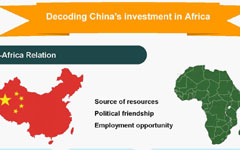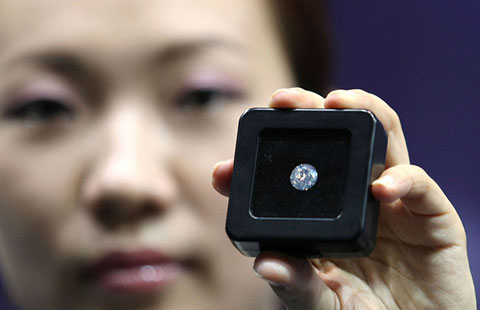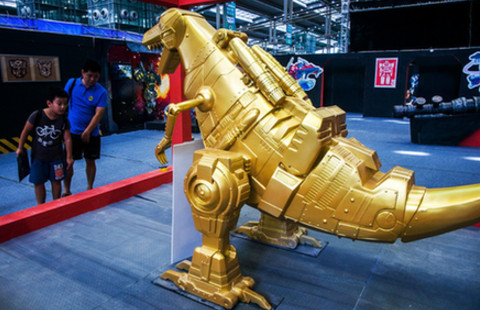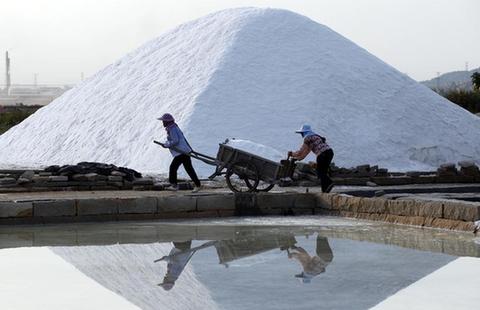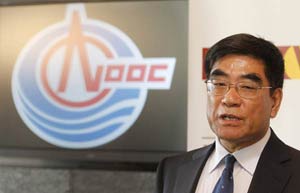Terminal opens doors for Chinese company
By Li Lianxing in Lagos (China Daily) Updated: 2014-07-21 07:15"We came out relatively late and we couldn't amalgamate our culture with local ones as easily as companies from Western or Commonwealth countries do. But we were confident we could learn to do what we had to do based on our professionalism, even if that is incredibly difficult."
The terminal is now one of the best in Lagos, and the company has 31 percent of market share, Shi says.
When the company was sounding out business possibilities in Lagos in 2010, he says, the terminal had almost no modern equipment, and all the containers it handled had to be loaded and unloaded using cranes.
"Due to the lack of machinery, we were highly inefficient, so we looked at how we could draw on the strong points we had. For example, we were good at handling large-scale loading and running professional equipment, while our partners were strong in local management, and logistics and transport across Africa."
Drawing on its experience, it developed a strategy that was suitable for Tin-can Island Container Terminal's needs, Shi says.
"We didn't buy the best or the largest equipment, but the most suitable for the job. We aimed to turn this poorly performing terminal into the first modern terminal in Lagos, and we have done exactly that."
The most important machines the company bought were gantry cranes that run on wheels with tires and seven mobile cranes, which have greatly helped improve efficiency.
China Merchants Holdings is a subsidiary of China Merchants Group, which has businesses in various industries including finance, transport and real estate. In China, the parent company specializes in harbor and shipping services throughout the country, including in major harbors such as Tianjin, Qingdao, Shanghai, Ningbo, Zhangzhou, Shenzhen and Hong Kong.
The group was a pioneer in the industry when China started its policies of opening-up and reform in the late 1970s, Shi says.
Nigeria is the hub of sea transport in West Africa, and its economy has boomed over the past few years as trade has grown.
Since China Merchants Holdings set up its company in Nigeria, its presence in Africa and elsewhere has grown.
"We opened a shipping terminal in Sri Lanka last year that is bigger than the Tin-can Island one," Shi says. "We are working on or looking at many projects, including ones in Djibouti, Tanzania and Togo."
Chinese companies working overseas need to be constantly aware of being responsible and sustainable investors, he says.
"We need to shoulder more social responsibility by training local staff, and in our case, we run a green operation, as we have done in China."
AT A GLANCE
TIN-CAN ISLAND CONTAINER TERMINAL LTD
Established in Africa: 2006
Local employees in Nigeria: 590
Locations in Africa: Lagos, Nigeria
Major businesses in Africa: shipping and container terminal services
Parent company in China: China Merchants Holdings (International) Co Ltd
- China Unicom's mobile subscribers grow 0.6% in June
- China's June forex purchase likely to rebound
- Waning lock-up shares eligible for trade
- Meat supplier of McDonald's, KFC suspended
- A land of rich pickings
- China Development Bank opens office in Venezuela
- Urumqi boasts first marsh gas power plant
- Villagers turn to smartphones, blogs to promote harvest
